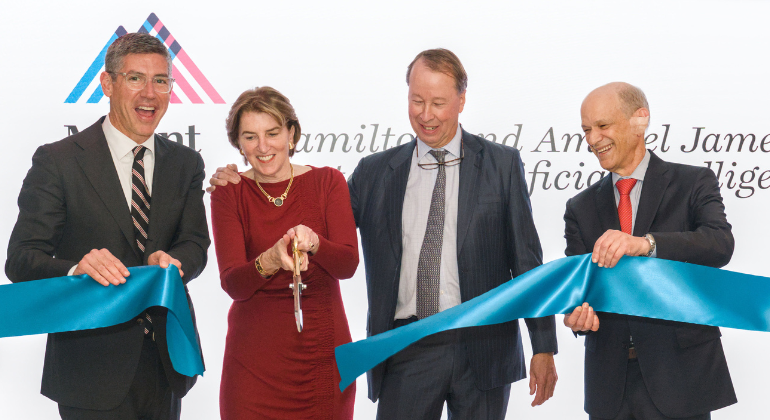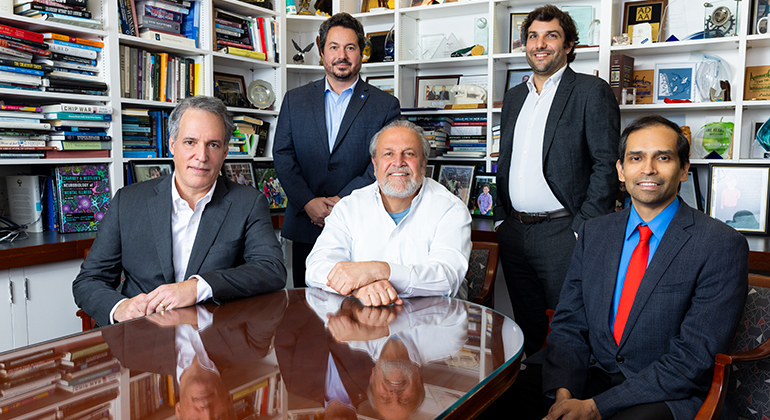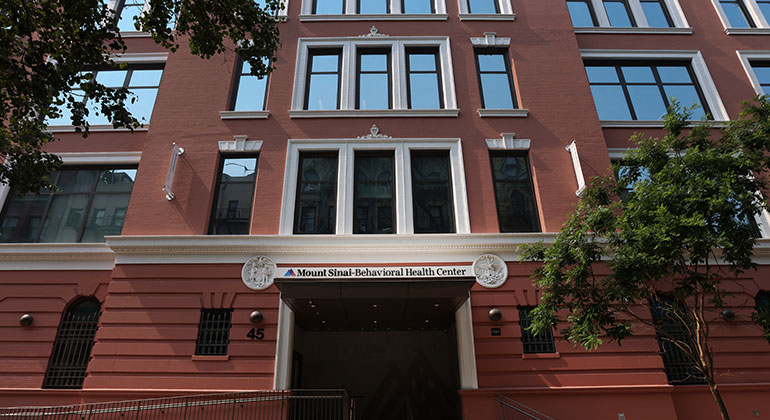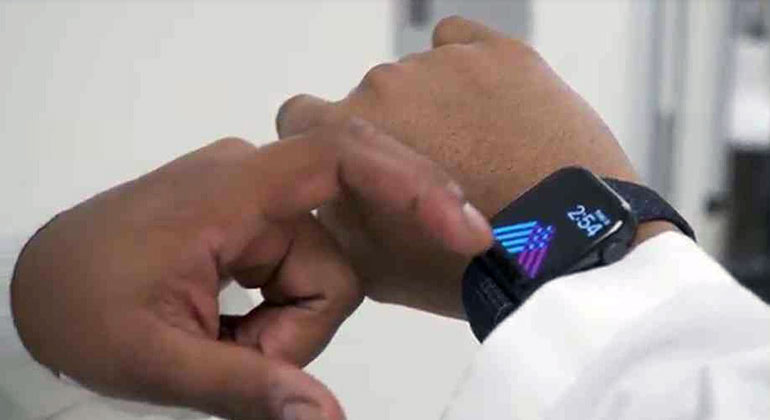Mount Sinai Announces $500 Million Investment to Create New “Mount Sinai Downtown” Network
The Mount Sinai Heath System today announced a plan for the sweeping transformation of Mount Sinai Beth Israel (MSBI), by investing over $500 million to create the new “Mount Sinai Downtown,” an expanded and unified network of state-of-the-art facilities stretching from the East River to the Hudson River below 34th Street. Much of the existing Beth Israel infrastructure is aging and unable to meet the needs of the modern healthcare landscape. On average, less than sixty percent of the hospital’s licensed beds are occupied and patient volume at the financially troubled hospital has decreased by double digits since 2012.
Unlike the 19 New York City hospitals that have shut their doors since 2000, Mount Sinai is choosing instead to transform care delivery in order to dramatically improve access, increase quality and preserve jobs. Mount Sinai’s investment will create a revolutionary network of greatly expanded primary, specialty, behavioral and outpatient surgery services that will address the healthcare needs of today and the future. Mount Sinai Downtown’s network will also include a new, smaller Mount Sinai Downtown Beth Israel Hospital with approximately 70 beds and a brand-new state-of-the-art Emergency Department, two blocks from MSBI; expanded and renovated outpatient facilities at three major sites with more than 35 operating and procedure rooms; and an extensive network of 16 physician practice locations with more than 600 doctors. The transformation will also include a major investment to support and strengthen behavioral health services, anchored at MSBI’s Bernstein Pavilion. Additionally, New York Eye and Ear Infirmary of Mount Sinai will be preserved and enhanced.
All of these facilities will be conveniently located throughout the community to better serve each patient in the most appropriate setting, whether in a traditional hospital bed, an outpatient practice, a state-of-the-art surgical facility, or even in the patient’s home. $500 million is our initial investment to develop Mount Sinai Downtown into one of the most innovative and accessible healthcare systems in the country.
The plan will transform MSBI gradually over four years. The current MSBI hospital will remain open during this transformation and services will be uninterrupted. All MSBI’s services will continue to be available in our Downtown network – except for the most complex cases and deliveries, which will be treated at other hospitals in the Mount Sinai Health System. Any changes during this transformation will be made with the sole intention of enhancing quality and improving outcomes. Patients will be able to continue to see the doctors they know and trust.
“For several years, we have been transforming the Mount Sinai Health System toward a new model of care, where we focus on keeping entire communities healthy and out of the hospital,” said Kenneth L. Davis, MD, President and CEO of the Mount Sinai Health System. “Mount Sinai Downtown is a dramatic next step that will enable us to improve access and increase quality by providing care for residents of downtown Manhattan where they live and work.”
“Mount Sinai Downtown will enable us to deliver tomorrow’s medicine today,” said Dennis S. Charney, MD, Anne and Joel Ehrenkranz Dean, Icahn School of Medicine at Mount Sinai, and President for Academic Affairs, Mount Sinai Health System. “Science from our Icahn School of Medicine, including the latest findings in genomics, digital medicine and the Hospital at Home program, can now be personalized for the individual patient and available in our new expanded Downtown network.”
Peter W. May, Chairman of the Boards of Trustees of the Mount Sinai Health System, added: “the Boards of Mount Sinai, including the members who were former members of the Beth Israel and the Continuum System Boards, are very excited by this new vision for the Mount Sinai Downtown network. The Boards of Mount Sinai are dedicated to making sure the resources are available for these investments in our system.”
Mount Sinai is the largest private employer in New York City and, on average, hires approximately 2,000 people per year. It has committed to retraining and placing as many of the MSBI employees within the Mount Sinai Health System as possible. The few who cannot be placed will receive help finding alternate employment. All union employees affected by the transformation will be offered other union opportunities at equal pay. Additionally, as clinical programs are reconfigured, Mount Sinai will accommodate and place all potentially displaced physicians-in-training within one of its highly ranked programs.
George Gresham, President of 1199SEIU United Healthcare Workers East, which represents over 4,000 nurses and caregivers at Beth Israel Hospital said: “as the healthcare industry continues to shift to outpatient clinics and homecare, more and more hospital beds have been left empty and Beth Israel has struggled with substantial financial losses. The Mount Sinai Downtown plan recognizes that in order to transform our healthcare delivery system for the 21st century and provide high quality services to the community, we must have good union jobs for those who deliver that care. We are proud of the agreement we have been able to reach with Mount Sinai, which will preserve access to quality healthcare, fulfill the need for additional community services and protect good jobs. Over 4,000 nurses and caregivers of 1199SEIU currently work at Mount Sinai Beth Israel, and every one of them will have job opportunities within the system, plus any necessary training to carry out the healthcare jobs of the future.”
Central to the downtown transformation is the new, smaller Mount Sinai Downtown Beth Israel Hospital, which will include approximately 70 beds and a brand new state-of-the-art Emergency Department (ED), located at 14th Street near Second Avenue -- just two blocks south of the current Beth Israel campus. This ED will accept ambulances and will be able to handle all emergencies, such as heart attack, and stroke, on site. It will also include a pediatric ED. Patients with the most complex conditions will be stabilized and transported to other hospitals in the Mount Sinai Health System. Service at the existing MSBI ED will continue without interruption until the new facility opens, which is expected in about four years. The new MSBI hospital’s inpatient beds may be increased in the event the community’s healthcare needs require additional capacity.
Mount Sinai will also be making a substantial investment in the Phillips Ambulatory Care Center (PACC) on Union Square, where renovations are already under way. At 275,000 square feet, PACC will be New York’s largest freestanding ambulatory care center in New York. It currently houses a full range of multispecialty services, including a state-of-the-art same day surgery center, radiology, surgical and medical specialties, pediatrics and obstetrics. PACC’s services will be expanded to include endoscopy and additional medical and surgical specialty services. Same day surgery will include 24/7 services for extended recovery. By early 2017, the site will also house a comprehensive urgent care center with weekend and evening hours.
Mount Sinai Beth Israel’s Comprehensive Cancer Center West, on 15th Street between Eighth and Ninth Avenues, is also being renovated and will include an expanded surgical program, as well as additional women’s health and primary care services. The behavioral health facility at MSBI’s Bernstein Pavilion, as part of the Behavioral Health Institute, will receive a substantial capital investment, and will continue to house integrated inpatient, ambulatory and emergency services, as well as a new intensive outpatient behavioral health program.
Finally, additional Mount Sinai physician practice locations throughout downtown will serve as an entry point into the larger health system of coordinated and integrated care. In all, more than 16 physician practice locations with over 600 physicians serving one million visits per year will be part of Mount Sinai Downtown’s network; the full list is below.
With the continued shift to ambulatory and home care, there are currently too many inpatient beds, particularly in Manhattan where there are six beds per 1000 people, in contrast to NYC and Westchester combined, where the ratio is 3 per 1000 people. In fact, the rate of overall empty beds in NYC has increased in the past years, even despite hospital closures. In 2012, 25% of beds were empty and in 2014, the number increased to 29%. The closure of St. Vincent’s Manhattan has not resulted in the increased use of inpatient beds in downtown Manhattan hospitals. In fact, since the closure in 2010 of St. Vincent’s Manhattan, the total average daily inpatient census of Bellevue, NYU Langone, NYP Lower Manhattan, MSBI and NYEE has declined.
Mount Sinai has begun outreach to elected officials and community leaders with the goal of working closely with the community to share our plans and discuss implementation to guarantee a smooth transition for patients and staff. For additional updates and information, please visit our website: www.mountsinai.org/downtown.
LIST OF MOUNT SINAI DOWNTOWN SITES:
1. Mount Sinai Downtown Beth Israel Hospital
2. New York Eye and Ear Infirmary of Mount Sinai (NYEE), 310 East 14th Street
3. Phillips Ambulatory Care Center, 10 Union Square East
4. Cancer Center West, 325 West 15th Street
5. MSBI Bernstein Pavilion, 10 Nathan D Perlman Place
6. NYEE of Tribeca, 77 Worth Street
7. 309 West 23rd Street
8. 275 Eighth Avenue
9. 275 Seventh Avenue
10. 55 East 34th Street
11. 230 West 17th Street
12. 147 East 26th Street
13. 222 West 14th Street
14. 380 Second Avenue
15. 52 West Eighth Street
16. 94 East First Street
17. 168 Centre Street
18. 255 Greenwich Street
19. 429-435 Second Avenue
20. 26 Avenue A
21. Gouverneur Clinic
About the Mount Sinai Health System
Mount Sinai Health System is one of the largest academic medical systems in the New York metro area, with 48,000 employees working across seven hospitals, more than 400 outpatient practices, more than 600 research and clinical labs, a school of nursing, and a leading school of medicine and graduate education. Mount Sinai advances health for all people, everywhere, by taking on the most complex health care challenges of our time—discovering and applying new scientific learning and knowledge; developing safer, more effective treatments; educating the next generation of medical leaders and innovators; and supporting local communities by delivering high-quality care to all who need it.
Through the integration of its hospitals, labs, and schools, Mount Sinai offers comprehensive health care solutions from birth through geriatrics, leveraging innovative approaches such as artificial intelligence and informatics while keeping patients’ medical and emotional needs at the center of all treatment. The Health System includes approximately 9,000 primary and specialty care physicians and 10 free-standing joint-venture centers throughout the five boroughs of New York City, Westchester, Long Island, and Florida. Hospitals within the System are consistently ranked by Newsweek’s® “The World’s Best Smart Hospitals, Best in State Hospitals, World Best Hospitals and Best Specialty Hospitals” and by U.S. News & World Report's® “Best Hospitals” and “Best Children’s Hospitals.” The Mount Sinai Hospital is on the U.S. News & World Report® “Best Hospitals” Honor Roll for 2025-2026.
For more information, visit https://www.mountsinai.org or find Mount Sinai on Facebook, Instagram, LinkedIn, X, and YouTube.

The Mount Sinai Hospital Ranked Among World’s Best in Newsweek/Statista Rankings
Mar 10, 2025 View All Press Releases
Mount Sinai Health System Launches New Season of Road to Resilience Podcast
Jun 13, 2023 View All Press Releases
Mount Sinai Launches Institute for Regenerative Medicine
Apr 24, 2023 View All Press Releases





